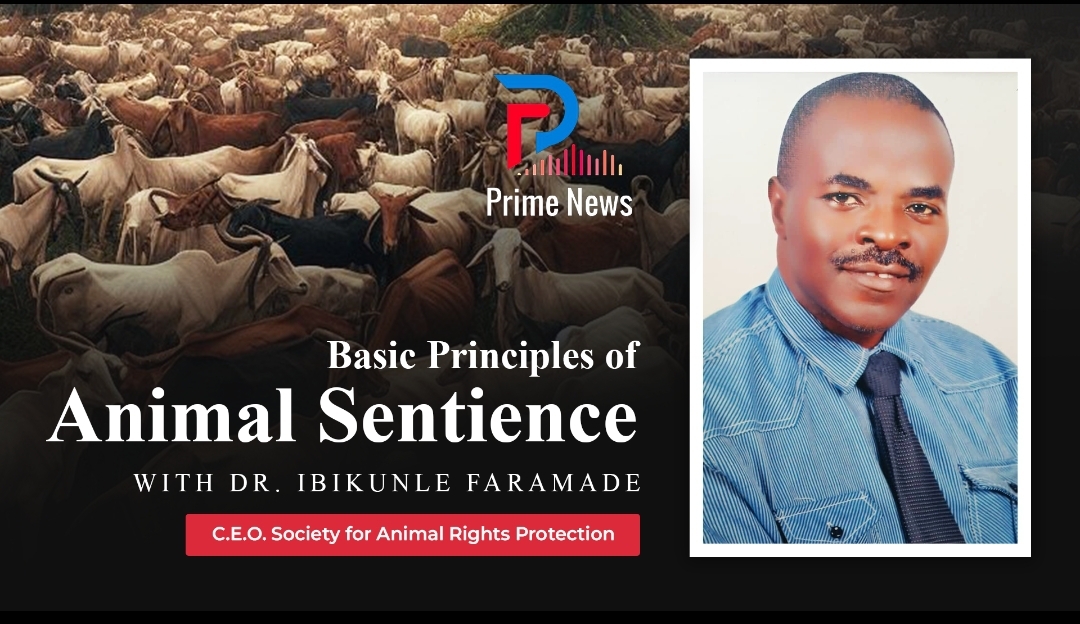 By Dr Ibikunle Faramade
By Dr Ibikunle Faramade
Preventive Veterinary Medicine could be described in general terms, as all efforts geared towards preventing the occurrence of diseases in animals. The practice of preventive medicine is species specific, since different species are affected by different disease agents in relation to their environment. Therefore, preventive veterinary medicine explores the opportunity of breaking the chain of disease occurrence and transmission from one animal to the other.
The occurrence of diseases in animals depend on the relationship between the host (animal), the pathogen and the environment. It is this relationship that preventive medicine seeks to moderate in order to forestall diseases in animals. If the immunity of the host is boosted, it would be able to withstand the invasion of pathogens. If the environment is made not to be conducive to proliferation of vectors or if environmental temperature and humidity are properly managed, pathogens won’t be able to fester. In addition, if the pathogens are not allowed to multiply to a particular extent required for infection, they won’t be able to precipitate infection. So, a safe balance is maintained and the animals would remain healthy. All categories of animals could be protected this way; companion, food animals, poultry etc.
One of the major pillars of animal freedom is freedom from pain, injury and diseases (by prevention or through rapid diagnosis and treatment). This, invariably means the assurance of access to basic animal health facilities to treat animals when they are sick and to vaccinate them against vaccine preventable diseases as and when due.
By this freedom, it is implied that animal owners should recognize their moral responsibilities to ensure that when their animals are sick, injured or experiencing any form of pain, they are promptly taken to the veterinary clinic or veterinary hospital for immediate attention. In cases of animals that could not be taken to the veterinary medical facility, the veterinary doctor should be invited promptly to attend to the medical needs of animals. These animals include cattle, pigs, poultry, captive wild animals in zoological gardens etc.
In Oyo State, a template has been set, which is worthy of commendation and emulation by other State Governments. In recognition of the obsoleteness of the Dogs Law of 1943, the 9th House of assembly amended many sections of this law to improve access of dogs to compulsory vaccination against rabies, distemper, hepatitis, leptospirosis, para -influenza and parvoviral enteritis diseases.
The short title of the law was cited as the Dogs Law, 2020. The following amendments were made to the principal law of 1943 to accommodate new provisions:
Section 6: Any person who keeps dog over the age of three months without license issued by the authority for the area, district, or place in which he resides authorizing him to keep such dog shall be guilty of an offence. The penalties for offenders were also appropriately reviewed to reflect contemporary realities.
Part 3 of the law is titled Obligations and Liabilities of Owner. The following are the recognized obligations of dog owners in Oyo State under section 12
A dog is kept under proper control by such means and in such manners as to prevent attack on outsiders and unsuspecting visitors
In the event of an attack or injury on outsider or unsuspecting visitor, the total medical expenses incurred for the treatment of the victim is borne by him, provided that the victim does not have criminal or evil intention
A dog is vaccinated against communicable diseases including parvovirus hepatitis, leptospirosis and rabies in line with standard veterinary practices.
Section 13 -Vaccination Campaign and Certificate
The authority, may, in conjunction with the Ministry of Agriculture and Rural Development carry out an annual vaccination campaign.
A certificate of vaccination issued by a registered veterinary surgeon shall be prima facie evidence of vaccination
Section 14 dwells on the liabilities of the Owner, as follows:
Any owner of a dog who contravenes or fails to comply with the provisions of paragraph 12 of this law shall be guilty of an offence and liable on conviction to a fine of one hundred thousand naira or imprisonment for six month or to both such fine and imprisonment.
Any dog owner who fails to comply with the provisions of paragraph (b) of section 12 of this law shall be guilty of an offence and liable on conviction to a fine of two hundred and fifty thousand naira or imprisonment for six months or both such fine and imprisonment.
Any owner who of a dog contravenes or fails to comply with the provisions of paragraph (c) of section 12 of this law shall be guilty of an offence and liable on conviction to a fine of two hundred thousand naira or imprisonment for six months or both such fine and imprisonment
The liability incurred under the provisions of sub- section (2) of this section shall not absolve the owner from his obligation under paragraph (b) of section 12 of this law.
The victim shall be entitled to proceed against the owner in civil action to recover any such sum incurred as medical expenses as a result of the attack or injury from the owner’s dog.
The initiative of the Honorable member of the House of Assembly who took the review of this law upon herself, Hon. Mrs Olawumi Oladeji is strongly commended and the immediate assent of the Executive Governor of Oyo State, Engr. Oluseyi Makinde FNSE is hereby applauded.
However, beyond the review of an obsolete law with direct effect on the public health, the mechanism of implementation should be urgently put in place. It is a public knowledge that the number of veterinary officers in the service of Oyo State is very low for a state with 33 Local Government and 35 Local Council Development Areas. The state of the public veterinary clinics and hospitals are not also appealing, including lack of basic infrastructure.
In order to reap the benefit of the very laudable law, the challenges of inadequate veterinary personnel in the civil service and the parlous state of most of the public veterinary medical facilities and investment in veterinary equipment and infrastructure demand very urgent attention by the Government.
It is by doing so that the implementation of the law could be made easy to the benefit of all the citizens of the state. The aspiration of putting rabies, one of the neglected zoonoses behind us globally, be 2030, as one of the targets of Goal 3 of the Sustainable Development Agenda i.e. Good Health and Well-being would become achievable.
Dr. Ibikunle Faramade is a veterinary pathologist, sustainable development practitioner, animal welfare advocate and a lecturer at the Federal College of Animal Health & Production Technology, Apata. Ibadan. He’s the C.E.O of the Society for Animal Rights Protection, a non-profit and a non-governmental organization dedicated to the promotion of animal welfare, animal rights and prevention of cruelty to animals. animalrightsprotection2020@gmail.com , +2348028305284



